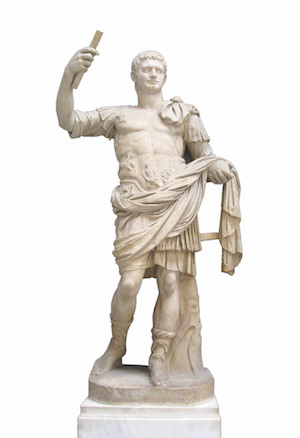LENS On Course
Those Witty, Bawdy Writers of Antiquity
On Course is a new feature highlighting classes that are intriguing, unusual or just draw the attention of our idiosyncratic editors.
Class Name: Heroes and Hustlers in Roman Literature
Taught by: Senior Instructor Timothy Wutrich, PhD, in the Department of Classics. It was created and initially taught by Martin Helzle, PhD, a former professor and department chair. Other classics faculty members also have taught the class; Wutrich has been a regular since 2009.
What makes it intriguing: In an age of tweets, sound bites and news crawls, what might seem less relevant to the uninitiated than long-form ancient Roman literature? Except, under Wutrich's stewardship, students discover such major works are timeless and applicable.

"So much of Roman literature has a political slant to it," said Wutrich, comparing the pointed commentary of ancient Rome to that of modern-day comedian commentators Stephen Colbert or Jon Stewart. "Satire is the Roman contribution to world literature."
Given the political climate, then, it's natural to draw parallels to current events. "The topicality is determined by the week," he said.
Students read prose, poetry and drama, translated to modern English from Latin, by authors from the Roman Republic and Roman Empire. The classic works tackle such topics as seduction, civil war, political intrigue and the portrayal of women.
Students typically stage dramatic scenes and stand before the class to make speeches on controversial issues of the day—but in the dramatic style of ancient Roman politician Marcus Tullius Cicero. (And, yes, they also write papers.)
Recently, one student orator took on the U.S. travel ban. Another gave a fiery speech denouncing a gag order to silence U.S. Sen. Elizabeth Warren's objection last year to Jeff Sessions' nomination as attorney general.
Along the way, students learn to appreciate ancient writers as witty, sophisticated and bawdy storytellers.
"It should make them think about who they are now," Wutrich said, "and how it reflects on the human experience."





